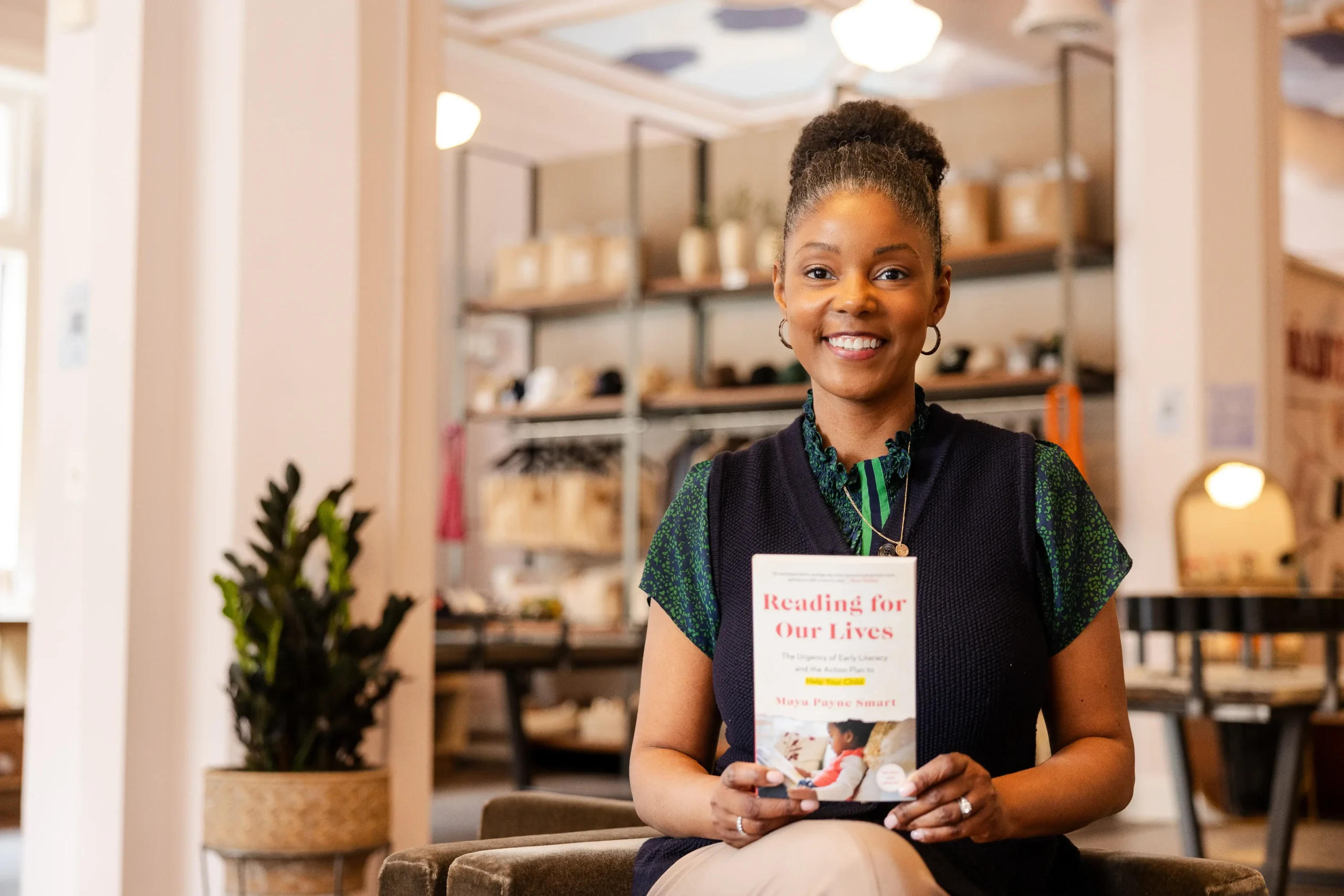Recently, I had the joy of chatting with Joe Donahue on WAMC/NPR’s beloved show The Roundtable. Joe has a real gift for asking thoughtful questions and creating space for meaningful conversation—our interview felt less like a media hit and more like a cozy chat over coffee.
If you haven’t listened to The Roundtable before, I highly recommend it. The show regularly dives into the kinds of big, important topics that matter deeply to families, educators, and communities. In our conversation, we unpacked one of my life’s biggest passions: giving parents the tools and confidence to raise strong readers from the very beginning.
Here are some of the key ideas I shared during our talk…
When my daughter was born, I couldn’t stop thinking about the headlines. Again and again, I read stories about America’s low reading achievement—especially among black children and children from low-income families. It didn’t sit right with me. Not because I doubted the data, but because I knew it wasn’t the children who were the problem. So I did what I do best: I dug in. As a journalist, I went in search of answers. As a mother, I was desperate for solutions. What I found changed the course of my parenting—and eventually my career.
Reading doesn’t begin in kindergarten. It begins at birth.
We often talk about learning to read as something that starts when children enter school. But the truth is, the groundwork is laid much earlier—long before that first day of kindergarten. Reading is built on a foundation of talking, playing, pointing, and listening that begins in infancy. In fact, studies show that the number of back-and-forth conversations children experience between 18 and 24 months strongly predicts their vocabulary skills years later.
So yes, bedtime reading is wonderful. But literacy-building doesn’t end there—and it doesn’t require a book in hand. Every diaper change, every grocery store trip, every cuddle on the couch is an opportunity to build your child’s brain. The secret? Your words.
You’re not “just” a parent—you’re your child’s first and most important literacy teacher.
Here’s something I want every parent to hear and believe: You are a literacy leader. From the start. Not later. Not when your child enters school. Right now.
You don’t need a teaching degree to prepare your child to read. You need attention, intention, and love. Gentle teaching—through play, conversation, and shared routines—makes all the difference.
Say the names of foods as you cook. Point out letters on the cereal box. Narrate your day like you’re hosting a podcast just for your baby. When your toddler babbles or your preschooler asks “why” for the hundredth time, lean in. You’re not just surviving the moment—you’re building vocabulary, background knowledge, and brain architecture that supports reading down the road.
Let’s take the pressure off and make learning light.
When people hear the word “instruction,” they often picture a desk, a workbook, and a whiteboard. But for young children, the best teaching doesn’t look like school—it looks like you.
It’s silly voices during storytime. It’s clapping out syllables while dancing in the kitchen. It’s pointing out that “S” curves like a snake or that “M” has mountains. It’s tuning into the sounds around you—truck beeps, dog barks, rhyming songs—and helping your child hear and play with language.
I call this the TALK method:
Take turns
Ask questions
Label and point
Keep the conversation going
It’s a simple way to remember that the best learning happens through warm, responsive interaction. Not drills. Not flashcards. Just life, spoken out loud.
Start now. And if you’re concerned, speak up.
Some parents worry: What if my child isn’t where they should be?
My advice: trust your instincts. Write down your observations. Check developmental milestones (the CDC’s free tracker is a great tool). Bring up concerns at doctor visits. The earlier we notice challenges—especially with language or sound awareness—the earlier we can get support.
Don’t wait until a report card or a reading score makes the problem “official.” Start paying attention now. Ask questions. Be proactive. (See How to Assess Your Child’s Development & When to Seek Help for more tips.)
Because here’s the thing: reading skills are harder to build later. Research shows that kids who start kindergarten behind in vocabulary and letter knowledge have a tough road ahead. But the good news? The building blocks are simple, doable, and already within your reach.
You’re not late. You’re right on time.
So let’s raise readers together—not with stress and pressure, but with storytime, sidewalk signs, silly songs, and a whole lot of heart.

